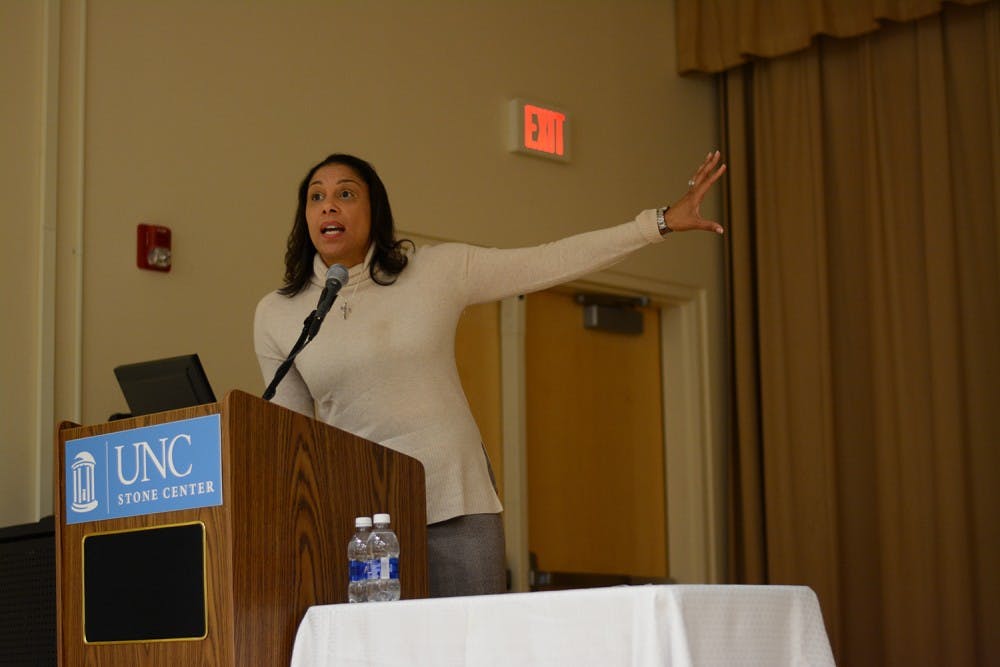Though she was delivering an annual lecture, Ange-Marie Hancock's speech at the Sonja Haynes Stone Center for Black Culture and History Monday night was grounded in current events.
Hancock talked about the importance of the intersectionality of race, gender and class in solidarity movements and social justice in her Sonja Haynes Stone Memorial Lecture, "Scaling Up Stories for Justice — a Role in Black Lives Matter for Every Sector of Our Community."http://stonecenter.unc.edu/program/stone-memorial-lecture-delivered-by-dr-ange-marie-hancock/
Hancock said this issue is especially relevant as activists restart conversations after the 2016 election.
Hancock, an associate professor of political science and gender studies at the University of Southern California, received her M.A. and Ph.D. in political science from UNC.
Lauren Jordan, member of the Stone Center Advisory Board, said the lecture is an annual event intended to honor the legacy of Sonja Stone, who was a professor of African-American studies at UNC.
“The lecture is dedicated to her memory and standard of excellence, advocacy and activism she left as her legacy,” Jordan said.
Hancock said talking to people who think differently from us is a large part of the conversation surrounding solidarity movements. She said this is relevant on college campuses especially.
“You have to engage with people who think differently from you to understand the way in which you’re going to be able to live together in the future,” she said.
Hancock said intersectionality and deliberate inclusivity are key to the black activist community and the Black Lives Matter movement now. She said the movement today looks different from Martin Luther King Jr.’s movement because it has people of all genders, races and sexual orientations at the forefront of the organization.



